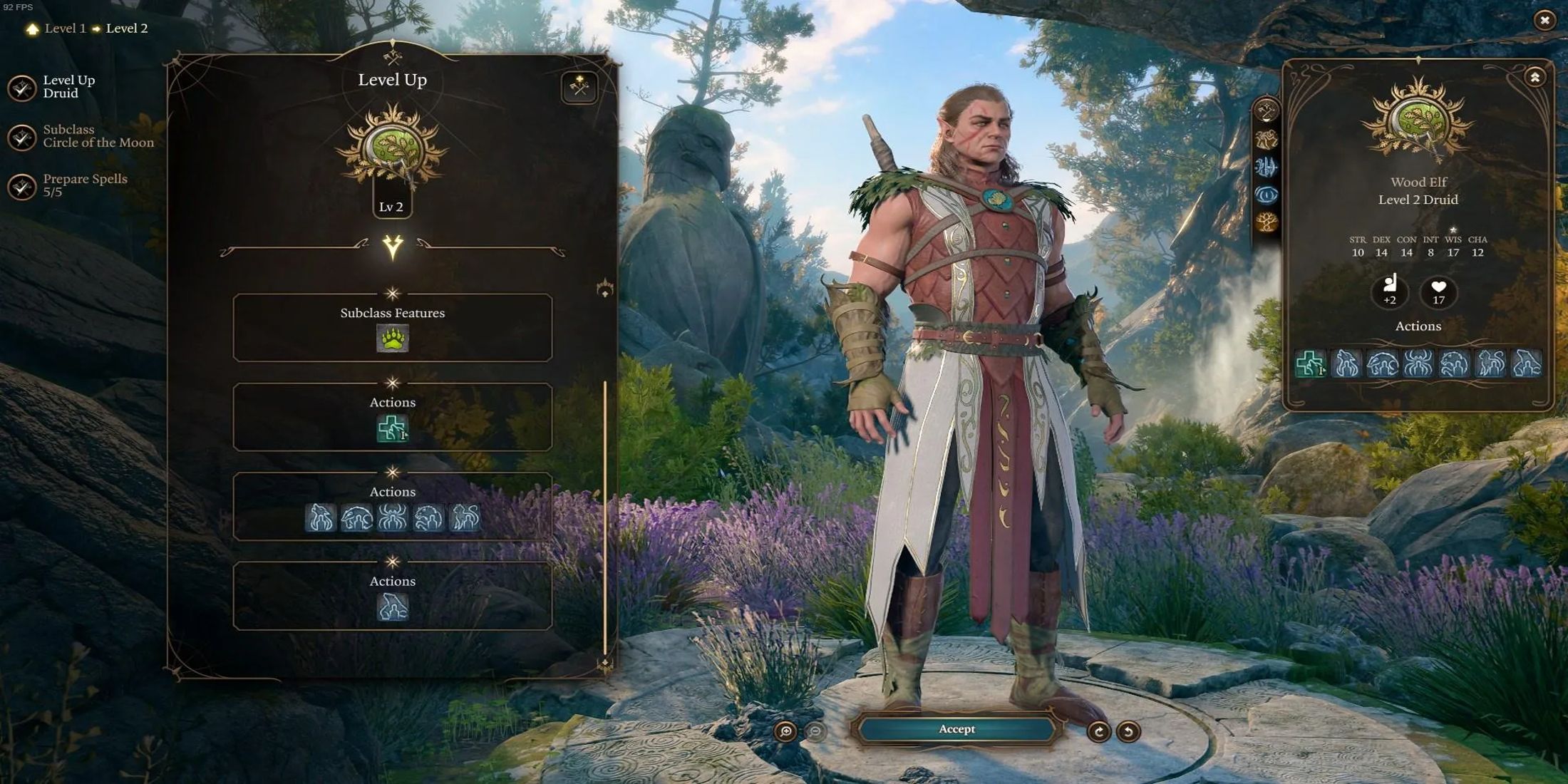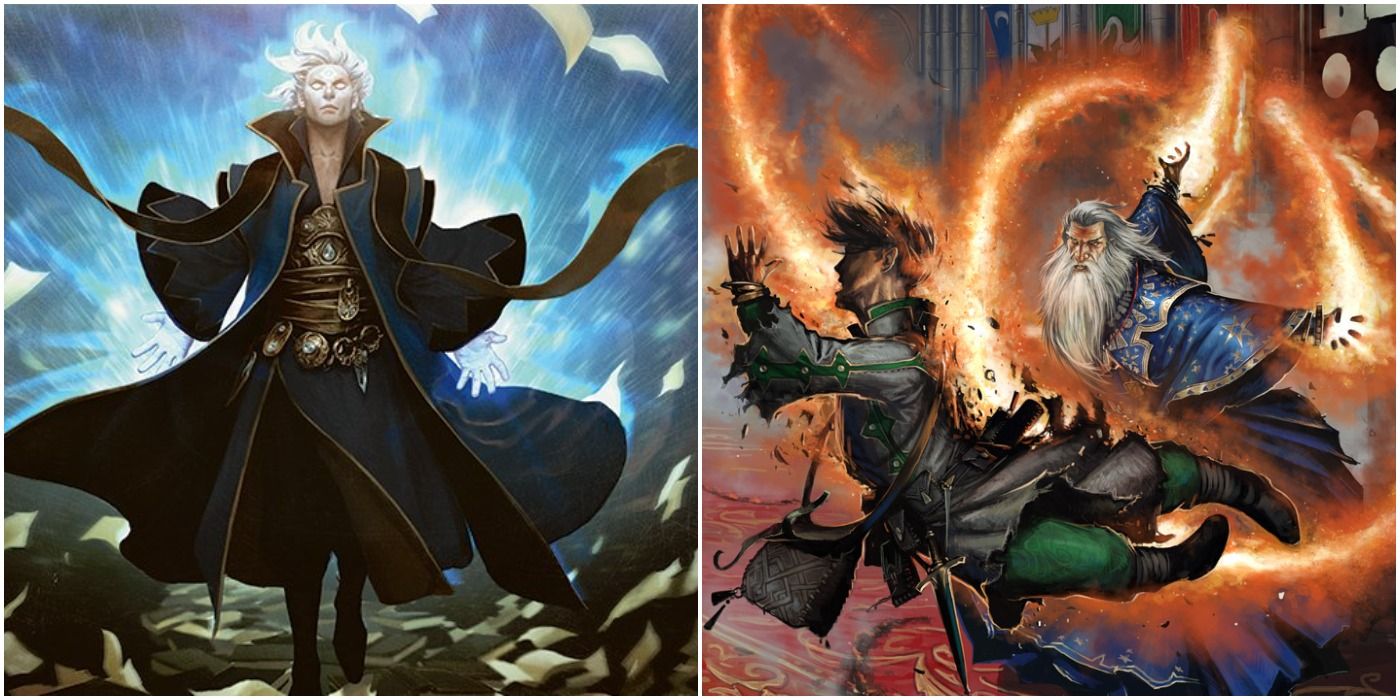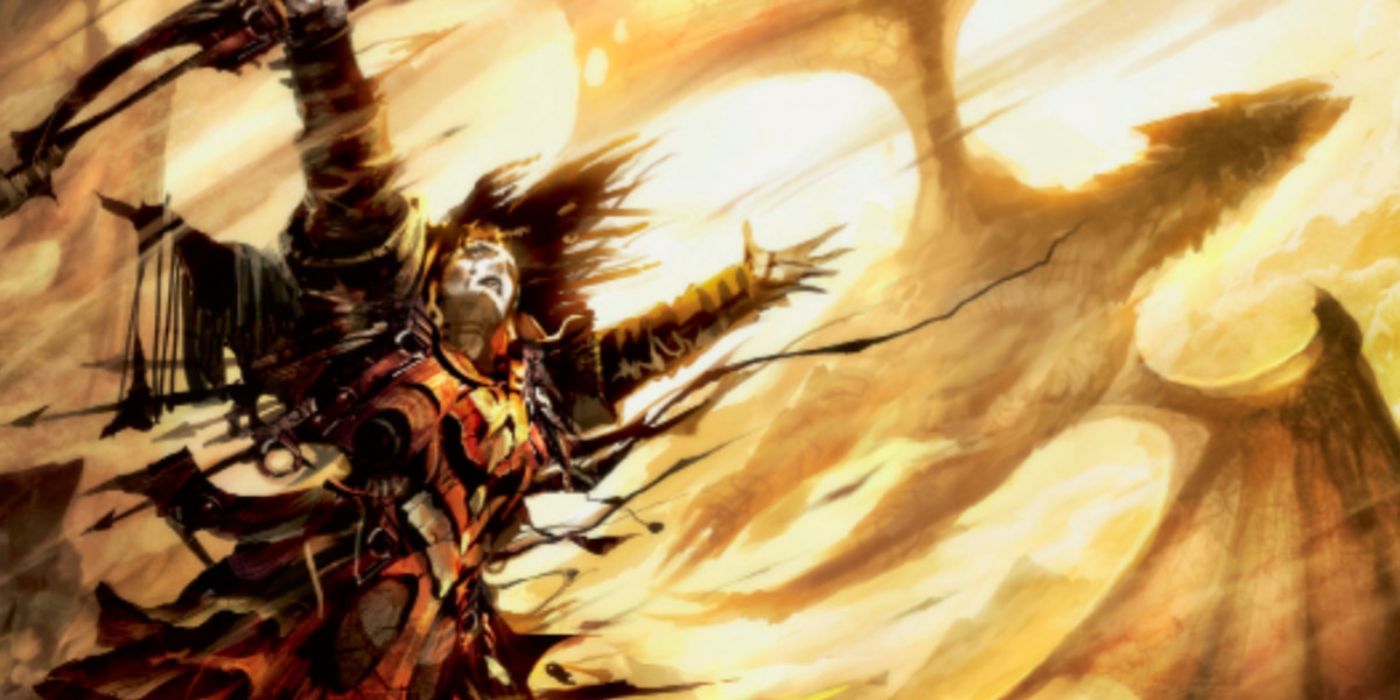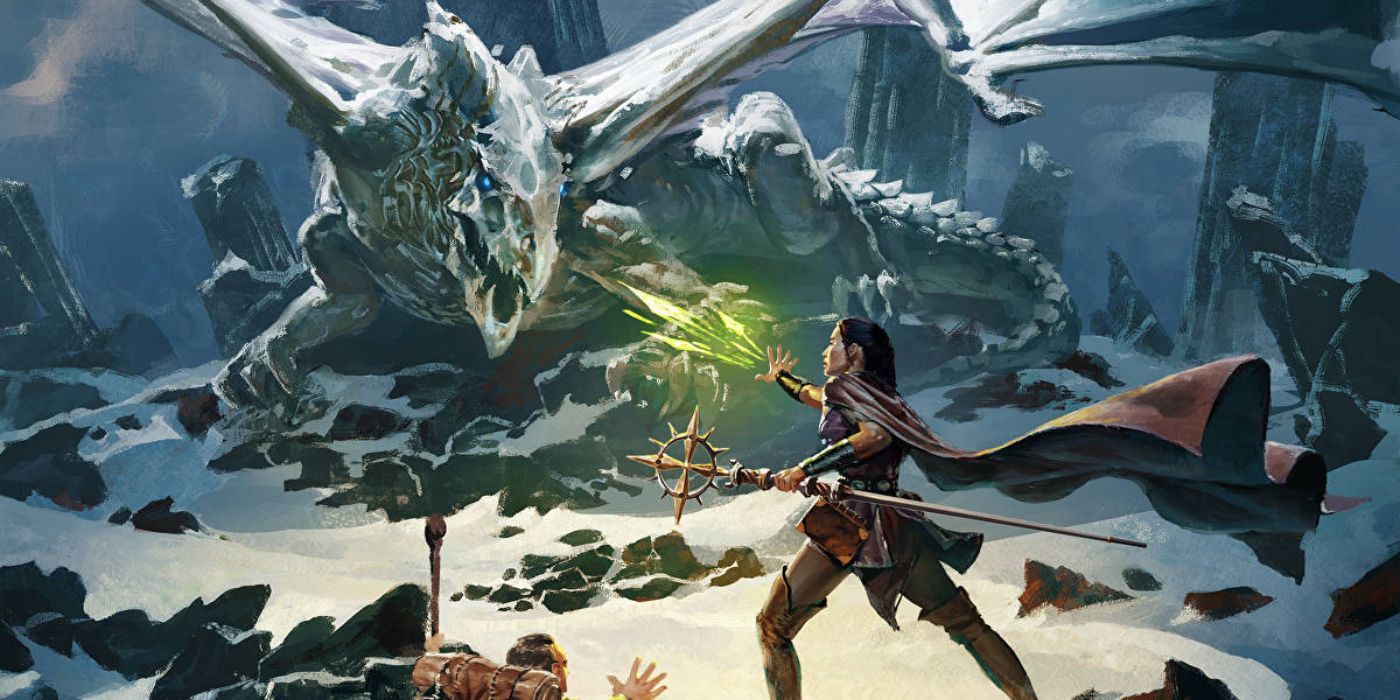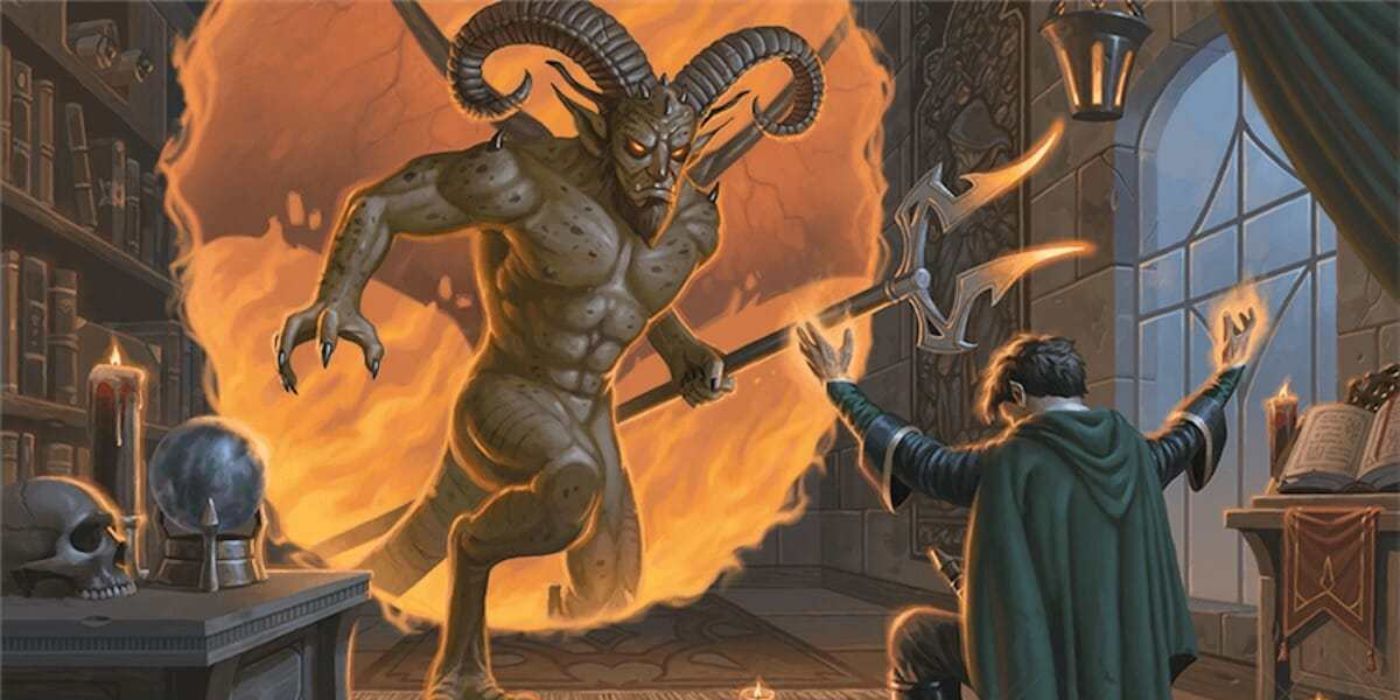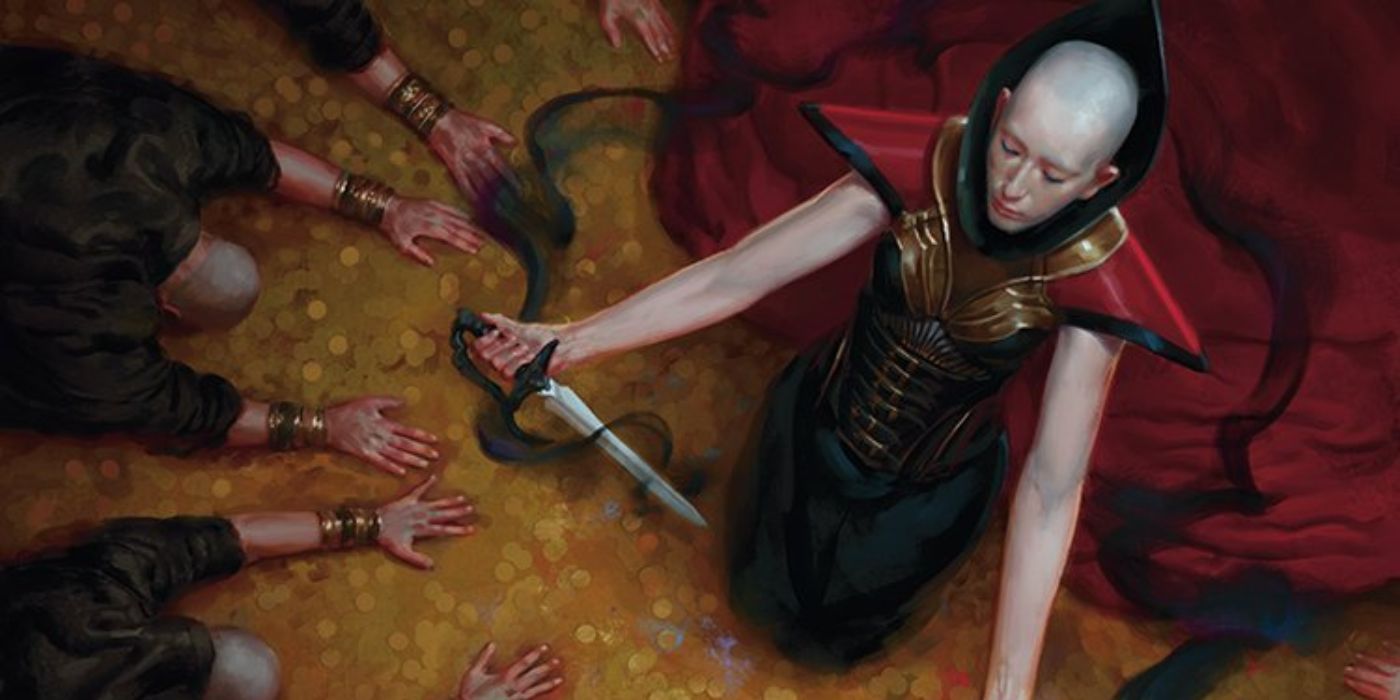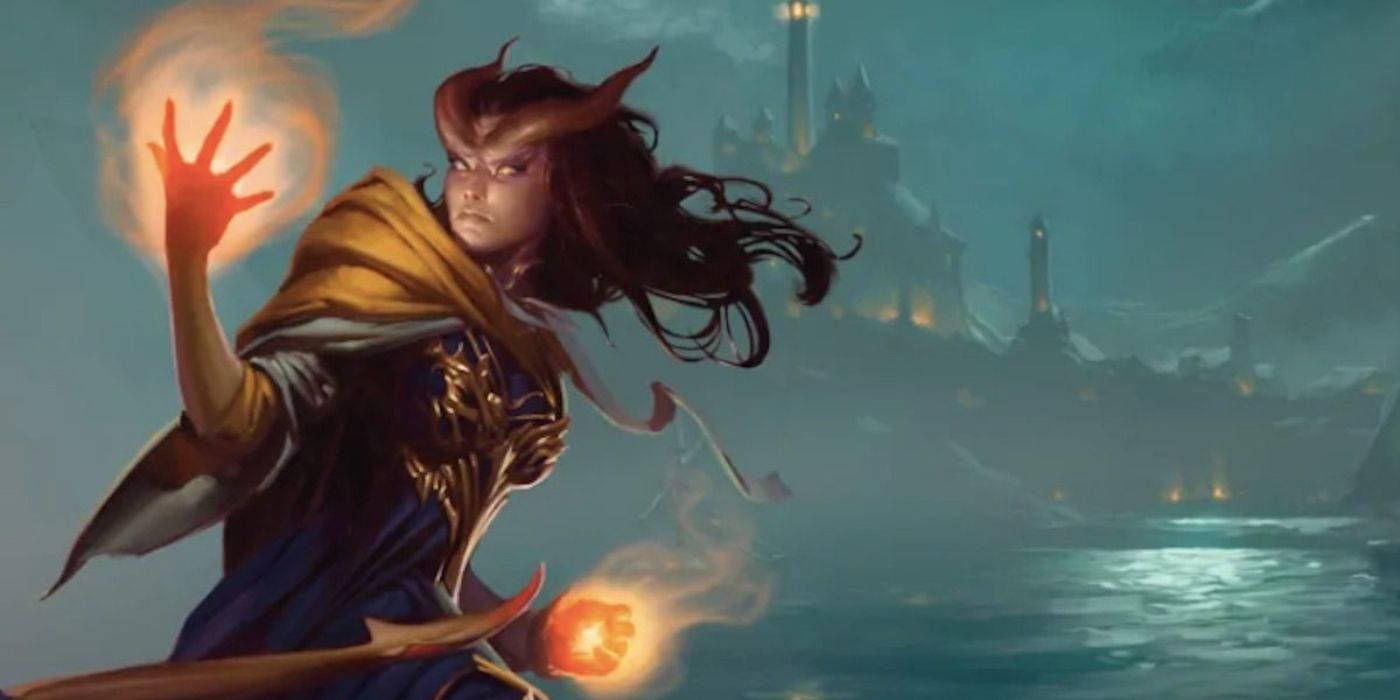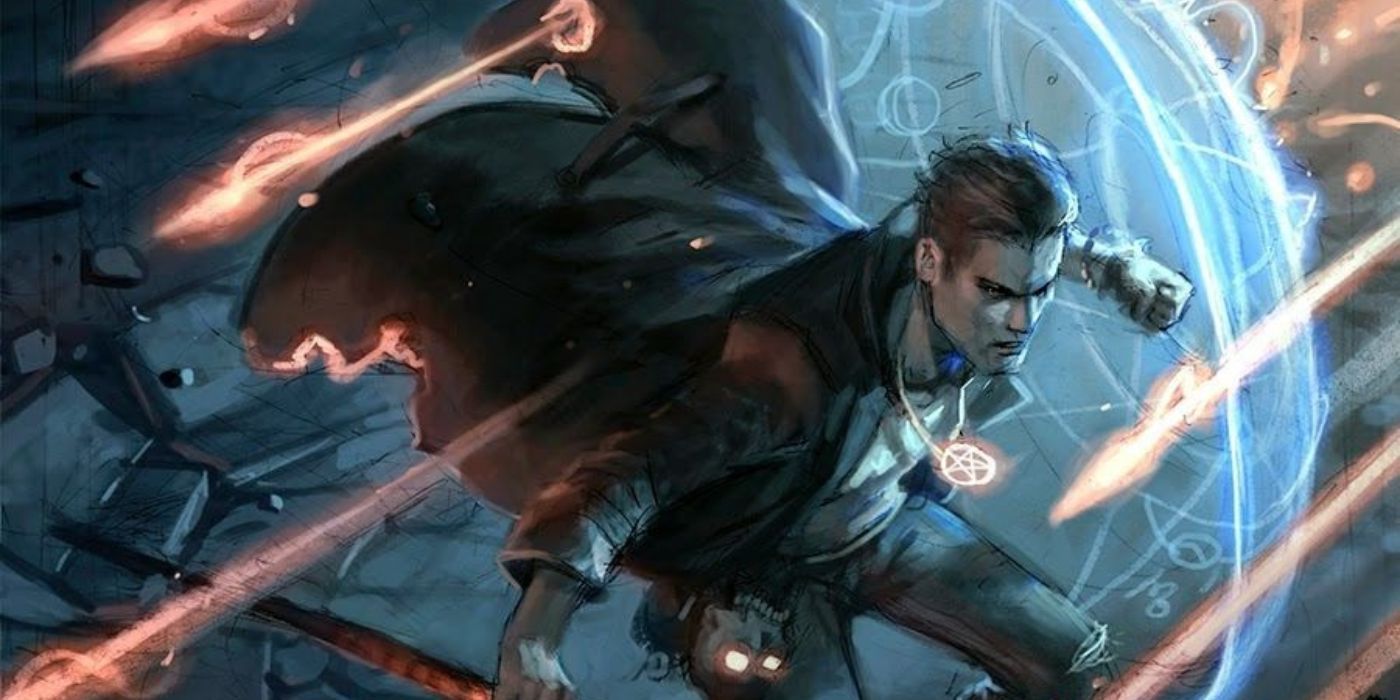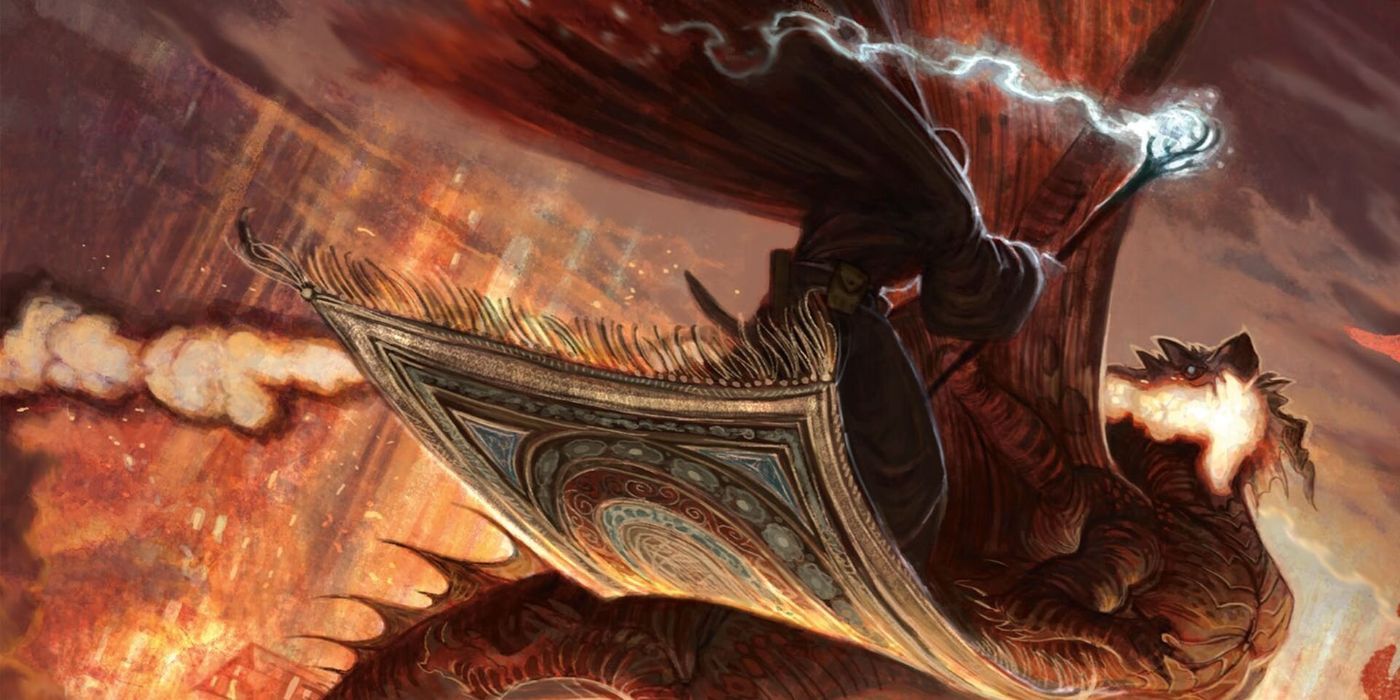The first-ever and most popular tabletop RPG by far is Dungeons & Dragons. Since its initial release in 1974, it has captivated fans with the opportunity to create new worlds and new characters. While D&D offers a free and fun experience, it also provides many complications, most notably with magic.
Unlike ranged and melee weapons, magic is complex and can be difficult to use correctly. It involves many intricate mechanics that take time and practice to understand. Even the most knowledgeable players will occasionally make rookie mistakes. However, by keeping key elements in mind, players will be able to cast spells near-effortlessly.
9 It Is Unlike Normal Actions
Casting magic is far different from performing other actions. Usually, an action utilizes a straightforward process to execute. However, casting a spell is not always so simple. Some spells may require a roll similar to attacking, while others need to meet certain prerequisites. This diversifies D&D's plethora of spells, yet it also adds confusion to spellcasting.
To better understand the intricacies of magic, players should review their list of available spells. Generally, spells provide a detailed description of everything from casting it to its effects. If a spell's details are ambiguous, it is best to search handbooks or consult with others for clarity. Overall, this helps players to better understand magic and utilize it effectively.
8 Casting Requires Spell Slots
With few exceptions, every spell in D&D (aside from cantrips) requires a spell slot to be cast. While spell slots may seem complex, they are as simple as a gun and its ammunition. The spells themselves act as the gun, while the slots are the bullets. Yet, this metaphor only works at a general level, as there is much more to spell slots.
Generally, the number of spell slots players have depends on their class and level. In addition, slots will have their own level, and can only be used to cast spells less than or equal to it. For example, a level six spell slot cannot be used for a level seven spell, but it can be used for a level one spell. In fact, some spells may benefit from using a higher-level spell slot, such as Magic Missile. Players must think carefully when casting, as a failed spell is a wasted slot.
7 Casting Time Varies
D&D provides hundreds of distinct spells for players to use. This expansive library contains spells capable of aiding allies, smiting enemies, or other fantastical effects. However, before using a spell, players must take the specified time to cast it. An effect may last anywhere from one second to one day. Therefore, players must note their spell's casting time before using it.
Without proper consideration of time, players may face insurmountable odds. Generally, instant spells function better in dire situations, while long spells work wonders during periods of peace. In a heated battle, a Wizard benefits greatly from using the instant cast spell Fireball. Meanwhile, before a journey, a Bard can plan ahead with the ten-minute spell Contingency.
6 Some Spells Can Be Cast As Rituals
Spells may have unique features or abilities, one of which is the ritual tag. Only certain characters have the ability to perform rituals, such as druids or those with the ritual caster feat. Spells cast as rituals require an extra ten minutes to use, and cannot be cast at higher levels. In return, the caster does not expend a spell slot, making it a useful ability to have.
Spell slots are vital to a caster's function and are best used sparingly. This is why rituals are a sought-after ability for casters, as saving a spell slot is well worth the extended duration cost of rituals. As long as it does not compromise the caster or the party, rituals should be utilized whenever possible.
5 Spells Require Components
Components are physical requirements players must meet to cast a spell, and fall into three categories: verbal, somatic, and material. Depending on the Dungeon Master, certain components may or may not play a part. Usually, DMs only require verbal and somatic components, and material only for powerful spells.
Regardless of the DM's discretion, players should understand every type of component. Verbal components require players to speak mystical words or chant. Somatic components involve gestures that require at least one free hand. If a player is bound or gagged, they may not be able to use these components. Finally, material components use certain items, requiring a free hand to hold the item.
4 The Duration Of Spells Varies
Another limitation of spellcasting is the duration of a spell. Typically, the purpose of the spell determines the amount of time it persists. Once cast, spells may subside immediately or remain permanently depending on their effect. Some spells may even be broken under certain conditions; for example, those affected may attempt saving throws to escape the spell's effects.
It is important to understand how long a spell lasts and if it can be broken. Doing so will allow players to prepare for that possibility and counter it effectively. For instance, Invisibility lasts for an hour, and breaks if the target attacks or casts a spell. If it wears off or breaks, players will become visible, which is incredibly dangerous when sneaking in restricted areas.
3 Spells Have Set Ranges
While wondrous and powerful, spells have their limits. To cast spells, players need to meet certain prerequisites. One check every spell holds is its range, which can be oneself or a target dozens of feet away. A spell's range usually depends on its function or school of magic. It is important to know a spell's range to prepare accordingly or devise a new strategy.
Being too far or too close forces the user to re-approach situations, possibly resulting in an uneventful turn. This is especially costly during critical moments, and may ultimately result in disaster. Knowing the range of a spell beforehand allows players to position themselves early on.
2 Targeting Isn't Always Straightforward
Targeting is a vital aspect of spellcasting. It allows players to determine who or what a spell will affect. Anything from the caster themselves to a designated area may receive a spell's effect. This grants many spells a great deal of versatility, and others significant limitations.
Usually, spell targeting is detailed extensively, but there are exceptions with obscure explanations. Regardless of the spell, players should know their target and the response that target may have. Spells may be obvious to the target, or they may go unnoticed. For instance, a guard is unaware under the spell Geas, but the spell Friends will be noticed immediately after it ends.
1 Area Of Effect Differs Greatly
Similar to a spell's range and target, the area of effect is the designated space the magic affects. Not every spell has an area of effect, but those that do offer greater utility. These spells can affect numerous things at once, making them extremely useful—just be careful that allies don't get caught in the crossfire.
The size differs between spells, but it usually is one of five shapes: sphere, cone, cube, cylinder, or line. Each shape covers a different area, offering distinct uses. For example, a line affects any target in a linear path, while a cone affects targets in its wide radius. Understanding a spell's area of effect allows players to use it to its full potential.


